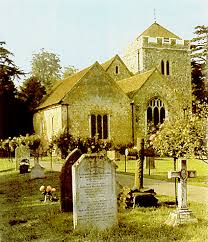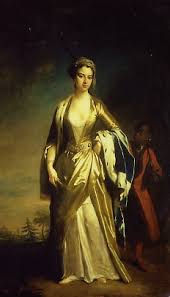Poems are written to affect different genres and different moods. Elegies, epigraphs, and friendship are common themes found in poetry. An elegy is a piece of prose that is designed to strike a sadder note, and it can be used at a funeral. Thomas Gray wrote an elegy entitled, “Elegy Written in a Country Churchyard”. Death is apparent throughout the lines of the poem, but is most affluent in lines 83-84, “In still small Accents whisp’ring from the Ground/ A grateful Earnest of eternal Peace,” (Greenblatt et al, 2006, p. A9).

Epigraphs are quotations, comments, or lead-ins to other literary works. An epigraph adds to a story or poem to sum up the overall theme, or it may relate to a previous work. “The Answer” is an epigraph Anne Finch wrote in response to Alexander Pope’s “Impromtu to Lady Winchilsea”. Pope’s poem makes fun of women, their wit, and most importantly, Finch’s writing capabilities: “Fate doomed the fall of every female wit,/ But doomed it then when first Ardelia [Finch’s pen name] writ,” (Greenblatt et al, 2006, p. 2596). To counter that, Finch’s poem consists of lines like, “Alexander! have a care,/ And shock the sex no more,” and, “We rule the world our life’s whole race,/ Men but assume that right,” (Greenblatt et al, 2006, p. 2596).
Friendship is a theme that is hard to discern, at least in Mary Wroth’s sonnet “103”. At first, the poem could be about love, or a lost love. When reading in between the lines, it becomes obvious that the narrator is describing a relationship beyond love; “Leave the discourse of Venus and her son/ To young beginners,” (Greenblatt et al, 2006, p. 1461). Wroth is perhaps saying that passion such as new lover’s experience is not a part of the relationship being depicted.
 One common thread of these four poems is honor. In their own way, each poem mentions honor as it relates to the situation in the poem. For example, Gray’s elegy says “Large was his Bounty & his heart sincere;/ Heaven did a Recompence as largely send./ He gave to misery all he had, a Tear,” (Greenblatt et al, 2006, p. A11). The character being described is full of honor and misery, even shedding a tear in his sad state. Wroth’s form of honor in “The Answer” comes when she writes, “Our admiration you command/ For all that’s gone before,” (Greenblatt et al, 2006, p. 2597). “The Answer” is an epigraph that demands respect of women, or the same honor that is bestowed on any man. Wroth speaks of honorable traits in her poem, like “truth, which shall eternal goodness prove,” (Greenblatt et al, 2006, p. 1461).
One common thread of these four poems is honor. In their own way, each poem mentions honor as it relates to the situation in the poem. For example, Gray’s elegy says “Large was his Bounty & his heart sincere;/ Heaven did a Recompence as largely send./ He gave to misery all he had, a Tear,” (Greenblatt et al, 2006, p. A11). The character being described is full of honor and misery, even shedding a tear in his sad state. Wroth’s form of honor in “The Answer” comes when she writes, “Our admiration you command/ For all that’s gone before,” (Greenblatt et al, 2006, p. 2597). “The Answer” is an epigraph that demands respect of women, or the same honor that is bestowed on any man. Wroth speaks of honorable traits in her poem, like “truth, which shall eternal goodness prove,” (Greenblatt et al, 2006, p. 1461).
Greenblatt, et al. [Eds]. (2006). The norton anthology english literature (8th ed.). New York, NY: W.W. Norton & Company, Inc.
